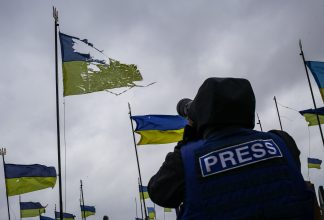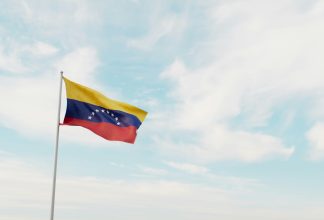The violence must cease and the international legal order must be upheld
Civil Rights Defenders does not actively communicate about the situation in Israel and Palestine, as the organisation is not currently operating there. However, Civil Rights Defenders works on issues concerning international grave crimes and the enforcement of international law. We are therefore deeply concerned that the brief ceasefire in Gaza has been replaced by renewed hostilities. It is of utmost importance that allegations of grave breaches of international law are examined, and that the international legal order is upheld.
Civil Rights Defenders’ work and communication are carried out in close cooperation with our local partners and are based on their needs and priorities. Although we are not active in Israel or Gaza, and therefore do not communicate actively about the conflict itself, we are acutely aware of the serious humanitarian and human rights situation. We view the ongoing violence, which has resulted in tens of thousands of deaths and immense human suffering in recent years, with great concern and deep sorrow.
Following a short period of ceasefire, hostilities have once again intensified. We emphasise that the violence must cease immediately, and that UN Security Council Resolution 2728 (2024) must be respected. We share UN Secretary-General António Guterres’ deep concern over the renewed Israeli bombings of Gaza and support his calls for an immediate ceasefire and adherence to international humanitarian law.
We are concerned that states are not unequivocally defending the rules-based international order and the protection of civilians’ lives and health. This has serious consequences not only for the civilian population in Israel and Palestine, but also for ongoing and future conflicts globally.
It is therefore crucial that states support independent international legal mechanisms, such as the International Court of Justice (ICJ) and the International Criminal Court (ICC), to ensure accountability and compliance with international law.
All parties in an armed conflict are legally bound to respect international humanitarian law and international criminal law and must be held accountable for violations. Civilians must not be targeted, and collective punishment of civilians is explicitly prohibited under international law. It is essential that all possible measures are taken to protect civilians and their rights, including unimpeded access to humanitarian aid.
Systematic or large-scale attacks on civilian populations, as well as actions aimed at the total or partial destruction of a national, ethnic, racial, or religious group, constitute genocide and crimes against humanity under international criminal law.
Justice for violations of international law can be pursued through independent international legal mechanisms, such as the ICJ and ICC, which have been established through agreements between a majority of the world’s states.
It is of utmost importance that states respect and support these mechanisms. We view with concern the executive order issued by U.S. President Donald Trump in February 2025, which imposes sanctions on the ICC.
The investigation conducted by the ICC’s Office of the Prosecutor is central to determining accountability for crimes committed by representatives of the State of Israel and Palestinian non-state actors. In November 2024, the ICC issued arrest warrants for Benjamin Netanyahu, Yoav Gallant, and Mohammed Diab Ibrahim Al-Masri on charges of suspected war crimes and crimes against humanity.
The international community should express its support for these legal proceedings as impunity risks exacerbating further violations and undermining the international legal order.


